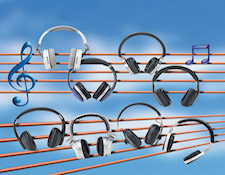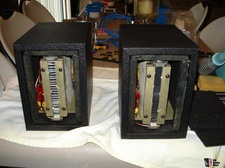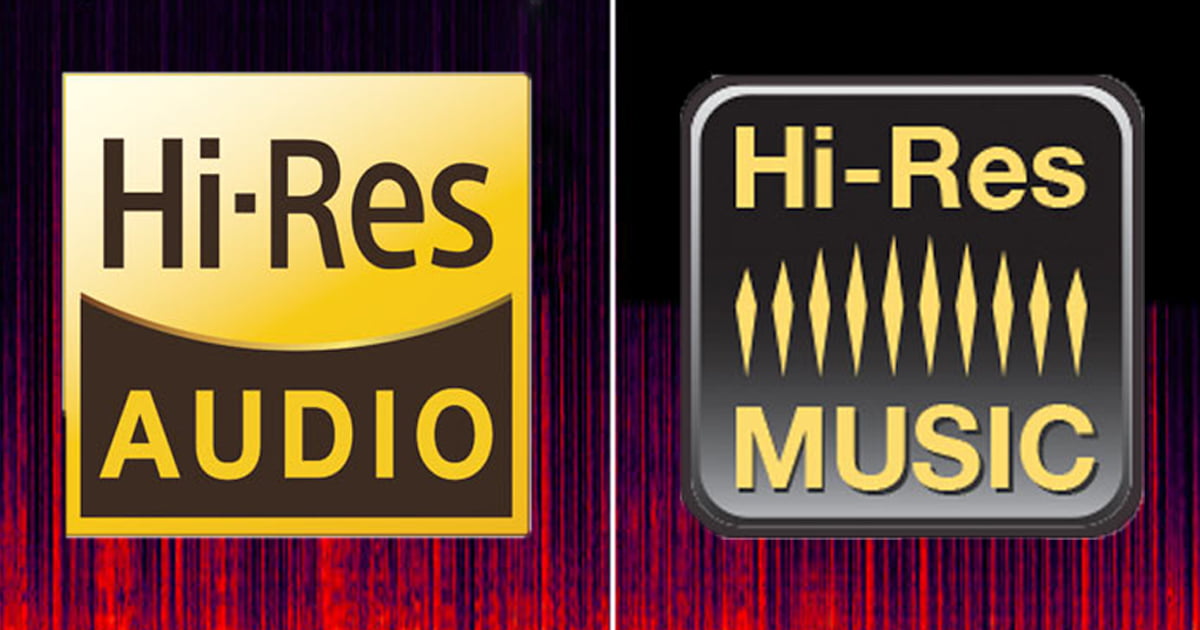It’s the time of year for saving money!
In Part 1 of this continuing series on audio reviews and reviewers I wrote that, historically, subjective reviews (descriptions of what a hi-fi product actually sounds like instead of just how it measures) didn’t always exist, and that, in fact, they seem to have first appeared with the initial publication of Stereophile Magazine in 1962. Since that time, I wrote, not only audio reviewing – both subjective (“listening”) and Objective (“testing or measuring”) – but also the number of products to be reviewed and the number of people reviewing them have increased tremendously. This, I wrote, is a good thing, both because it’s entertaining (at least to me) and, more importantly, because there are now so many products, able to be used together in so many possible combinations, that IT IS NOW UTTERLY IMPOSSIBLE FOR ANY ONE PERSON TO HAVE ACTUALLY HEARD AND EVALUATED EVEN THE TINIEST SIGNIFICANT FRACTION OF THE TOTAL.
 To illustrate this point, I said that although there are hundreds or even thousands of brands (yes, brands, NOT models) of Hi-fi gear out there (including 400 or more brands of just speakers) that could be reviewed and evaluated, even just a very simple phono-only system, with only a total of 9 elements
To illustrate this point, I said that although there are hundreds or even thousands of brands (yes, brands, NOT models) of Hi-fi gear out there (including 400 or more brands of just speakers) that could be reviewed and evaluated, even just a very simple phono-only system, with only a total of 9 elements
(phono cartridge, tonearm, turntable, phono cable, preamp, preamp-to-amplifier cables, amplifier, speaker cables, and speakers) would still — even if we were to arbitrarily limit the number of products to just 10 possibilities for each kind of component to be used in it — allow for a BILLION possible combinations to be reviewed, and would still, even at just ten minutes per combination, with no breaks and no set-up time, take MORE THAN 19,000 YEARS TO AUDITION!
Obviously even such a grossly limited audition of all the possible combinations of even such a sharply limited number of components is impossible. And that, I wrote, is why – even if only to share the load among many people instead of leaving it to any single individual, we need equipment reviews and equipment reviewers to do them.
There’s another reason, too, why reviews and reviewers are necessary — one that I didn’t mention last time: Other than advertising by someone who’s actively trying to sell you one, a review may be your ONLY source of information about a particular product.
With ever more buying taking place on the internet, either as a result or a cause of a dwindling number of hi-fi dealers, and because whatever dealers do remain may be too far away or may simply not carry the brand or model of product that you’d like to audition or learn more about, a review may be the ONLY way you can get the knowledge you seek
One point of clarification, though: A “review” isn’t necessarily something that you read in a blog or one of the print magazines. The fact of it is that any time at all that somebody – anybody — voices an opinion on the performance of a hi-fi product, that, for all practical purposes, is a “review” and can be just as valuable (or worthless) as any other, more formal, review in helping you to make a buying or see-and-hear-it-for-yourself auditioning decision.
 The only thing about a “review” that you should really be concerned about is whether you should believe it. One good illustration of this comes from back in the early 1980s before I, myself, became a reviewer: I was just hanging-out at “Sound Cellar” in Brea, California, one afternoon (my favorite hi-fi shop at the time, and the place that my wife always knew to call if I was missing and she needed me) when two people came into the store; a young man (probably in his early 20s) and a very old one (probably even older than I am now), legless, pushing himself along on a little wheeled cart, and wearing two of the biggest hearing aids I had ever seen. They had come in, at the older man’s suggestion, to audition the Sequerra T-1 ribbon tweeters and, for that purpose, the older man had brought with him, as a demonstration for the younger one, a cassette of some of the worst-sounding, worst-recorded music I had ever heard. Now, consider this: Given an awful-sounding cassette (a very limited medium at its very best) as your only demo material, and a recommendation by a man who, if one can judge by his two hearing aids (each one the size of a pocket transistor radio), probably doesn’t hear very well, would YOU have bought the tweeters? The young man did – indicating either that he was even deafer than his mentor; that he had some reason other than what he heard for accepting the older man’s judgment; or that he simply liked what he heard.
The only thing about a “review” that you should really be concerned about is whether you should believe it. One good illustration of this comes from back in the early 1980s before I, myself, became a reviewer: I was just hanging-out at “Sound Cellar” in Brea, California, one afternoon (my favorite hi-fi shop at the time, and the place that my wife always knew to call if I was missing and she needed me) when two people came into the store; a young man (probably in his early 20s) and a very old one (probably even older than I am now), legless, pushing himself along on a little wheeled cart, and wearing two of the biggest hearing aids I had ever seen. They had come in, at the older man’s suggestion, to audition the Sequerra T-1 ribbon tweeters and, for that purpose, the older man had brought with him, as a demonstration for the younger one, a cassette of some of the worst-sounding, worst-recorded music I had ever heard. Now, consider this: Given an awful-sounding cassette (a very limited medium at its very best) as your only demo material, and a recommendation by a man who, if one can judge by his two hearing aids (each one the size of a pocket transistor radio), probably doesn’t hear very well, would YOU have bought the tweeters? The young man did – indicating either that he was even deafer than his mentor; that he had some reason other than what he heard for accepting the older man’s judgment; or that he simply liked what he heard.
If he bought the tweeters because he liked them, well, there’s no accounting for taste, so that’s a perfectly good reason. If it was purely on the basis of the older man’s recommendation, though, I, if I were him, would certainly have preferred guidance from a source at least a seemingly more qualified.
And that brings up the whole issue of just exactly what does “more qualified” mean? It could be something as simple as having better hearing (even though, as we have so often been told, the ability to listen is, at least within limits, far more important than just the ability to hear). It could be knowing what to listen for, coupled, hopefully, with a background of experience in what things actually sound like. It could also mean — and this might be more important than anything else — having tastes and preferences and a listening orientation similar to your own. (I, for example am big on imaging and soundstaging, which are the first things that I listen for when judging a new recording or piece of equipment. Because of that, I would naturally be more interested in a review by someone with a similar orientation, rather than one who might, instead prefer and be oriented toward transient attack and decay, harmonic structure, dynamic range, “speed”, or any number of other things.)
What qualifies a good reviewer and what makes for a good review are things that I will go into in some detail in the next and later installments of this continuing series. I hope you will join me and that I will see you then.





